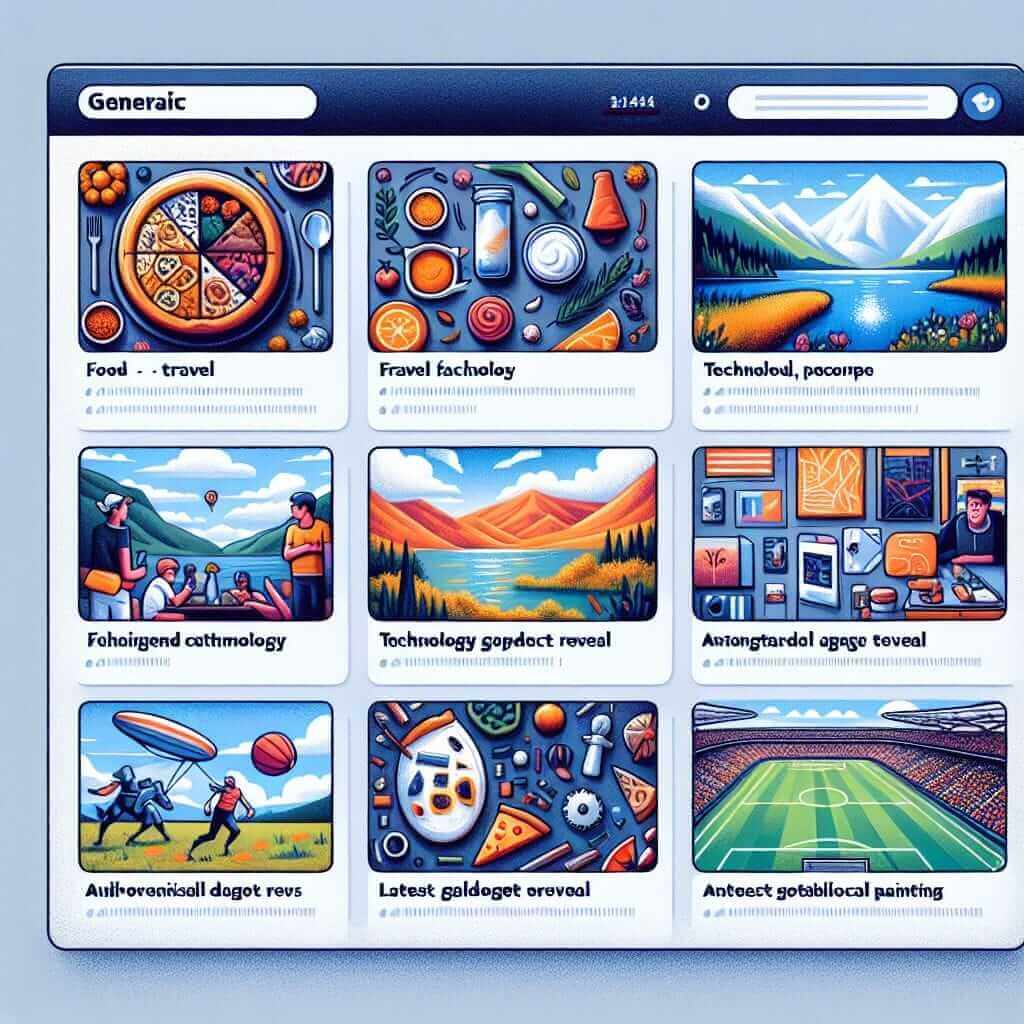The rapid rise of social media platforms has transformed the way we consume information. One key aspect influencing this change is the algorithms these platforms use to curate content. For the IELTS Writing Task 2, topics related to technology and media are increasingly prevalent. Over the past few years, several IELTS essay questions have touched upon themes involving social media, information technology, and their impacts on society. This suggests that topics like “The effects of social media algorithms on information consumption” could appear frequently in future exams.
Let’s look at some past IELTS essay questions related to this theme:
- “Some people believe that social media platforms have a negative impact on society. Do you agree or disagree?”
- “To what extent has social media changed the way we interact with each other?”
- “Discuss the advantages and disadvantages of using artificial intelligence in everyday life.”
Based on this analysis, we can predict that a question about the impact of social media algorithms could very well appear in the IELTS Writing Task 2. Here is a potential topic:
“With the increasing use of social media platforms, the way people consume information has significantly changed. Discuss the positive and negative effects of social media algorithms on information consumption.”
Main Content
Chosen Task for Sample Essay
Below is the potential IELTS Writing Task 2 prompt we will use for our sample essay:
“With the increasing use of social media platforms, the way people consume information has significantly changed. Discuss the positive and negative effects of social media algorithms on information consumption.”
Analysis of the Essay Prompt
Firstly, it’s crucial to comprehend the key terms: “social media algorithms” and “information consumption”. Algorithms on social media dictate what kind of content is shown to users, based on their previous behavior and preferences. Information consumption refers to how people access and process information available on these platforms. The essay prompt requires a balanced discussion of both positive and negative effects.
Sample Essay
With the proliferation of social media platforms, the landscape of information consumption has drastically evolved. This evolution has been largely driven by sophisticated algorithms that tailor content to individual preferences. While these algorithms offer certain advantages, they also pose significant downsides.
One of the primary benefits of social media algorithms is the personalization of content. By analyzing user behavior, algorithms ensure that individuals receive content that is highly relevant to their interests. This can enhance user engagement and make information more accessible. For instance, people interested in current affairs can receive news updates in real-time without having to search for them. This tailored approach makes the consumption of information more efficient and user-centric.

However, while personalization can be a boon, it also has its drawbacks. A major concern is the creation of echo chambers. Social media algorithms tend to show users content that aligns with their existing beliefs, leading to a narrowed perspective. This phenomenon can polarize societies, as individuals become less exposed to diverse viewpoints and more entrenched in their own opinions. Consequently, this can hinder informed decision-making and societal understanding.
Moreover, the bias in algorithms can perpetuate misinformation. Algorithms prioritize content that generates high engagement, which sometimes includes sensational or misleading information. This not only compromises the quality of information available but also poses a risk to the public’s understanding of important issues. For instance, during the COVID-19 pandemic, social media platforms were criticized for spreading misinformation due to algorithmic preferences.
Despite these negative impacts, not all effects of social media algorithms are detrimental. They also play a role in amplifying marginalized voices, providing a platform for individuals who might otherwise be overlooked by traditional media outlets. This democratizes information distribution and empowers communities to share their stories and experiences.
In conclusion, the impact of social media algorithms on information consumption is multifaceted. While they enhance the efficiency and relevance of content delivery, they simultaneously risk creating echo chambers and spreading misinformation. A balanced approach, with regulatory oversight and improved algorithm design, could mitigate these issues and harness the benefits more effectively.
Word count: 339 words
Notes on Writing the Essay
Vocabulary and Grammar Notes
-
Vocabulary:
- Proliferation (n) ˌprɒlɪfəˈreɪʃən: Rapid increase in numbers.
- Sophisticated (adj) səˈfɪstɪˌkeɪtɪd: Developed to a high degree of complexity.
- Personalization (n) ˌpɜːsənəlaɪˈzeɪʃən: The action of designing or producing something to meet someone’s individual requirements.
- Echo chambers (n) ˈɛkəʊ ˌtʃeɪmbəz: Environments in which a person only encounters information or opinions that reflect and reinforce their own.
- Polarize (v) ˈpəʊləraɪz: To divide or cause to divide into two sharply contrasting groups or sets of opinions or beliefs.
- Misinformation (n) ˌmɪsɪnfəˈmeɪʃən: False or inaccurate information.
- Amplify (v) ˈæmplɪfaɪ: Increase the volume of sound, especially using an amplifier or, in this context, to make something more intense or stronger.
- Marginalized (adj) ˈmɑːdʒɪnəlaɪzd: Treated as insignificant or peripheral.
-
Grammar:
- Use complex sentences to show articulation of ideas (e.g., “While personalization can be a boon, it also has its drawbacks.”)
- Employ transition words to ensure the essay flows logically (e.g., “Moreover,” “However,” “In conclusion”).
- Vary sentence structures to maintain reader interest and demonstrate language proficiency.
Conclusion
In summary, understanding the effects of social media algorithms on information consumption is critical for the IELTS Writing Task 2. By discussing both the benefits and drawbacks, candidates can present a balanced view, essential for achieving higher band scores. To further prepare, consider analyzing similar topics and practicing essays based on the predicted question sets. This will enhance not only your writing skills but also your ability to engage with current, relevant themes in the exam.